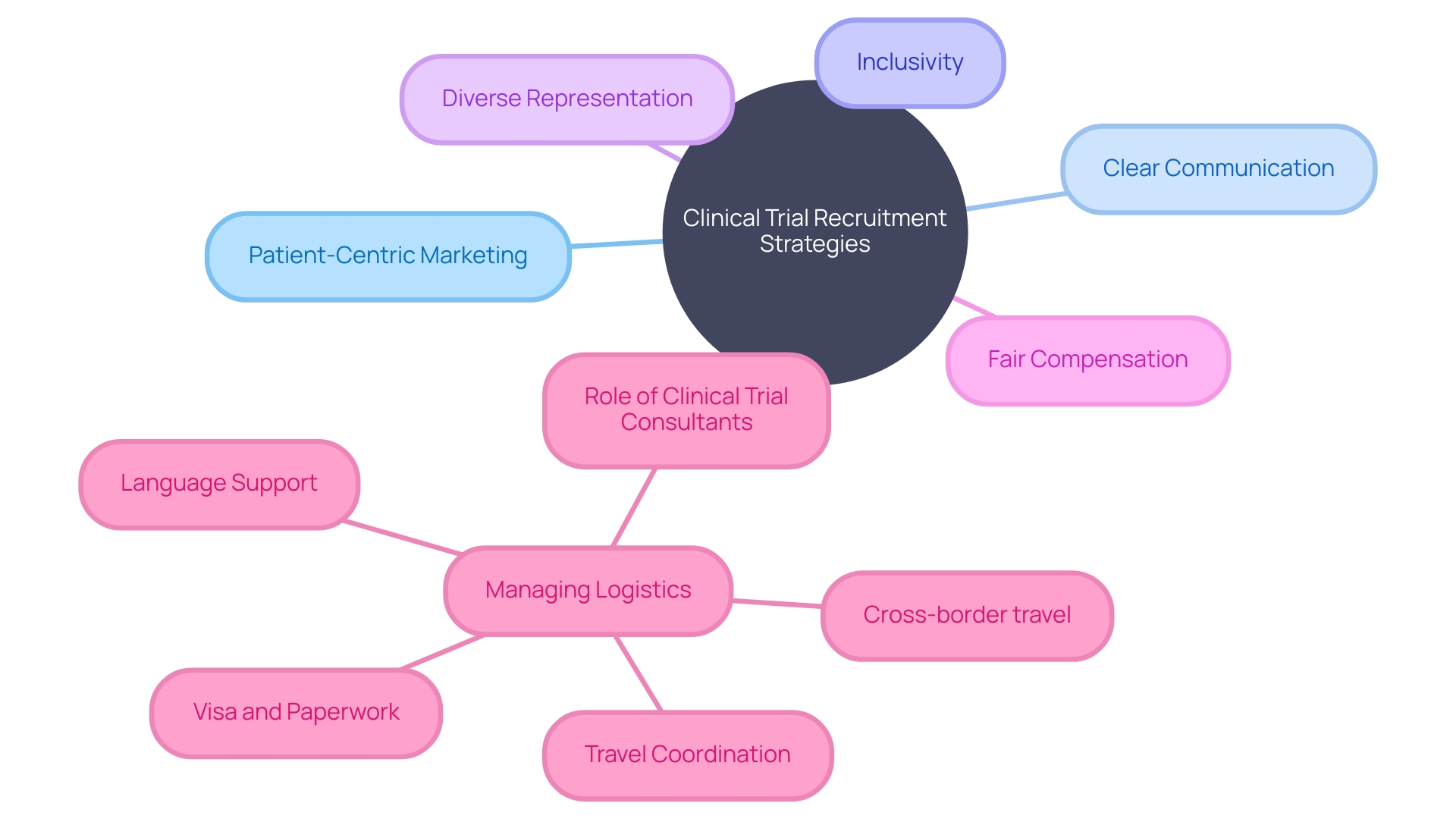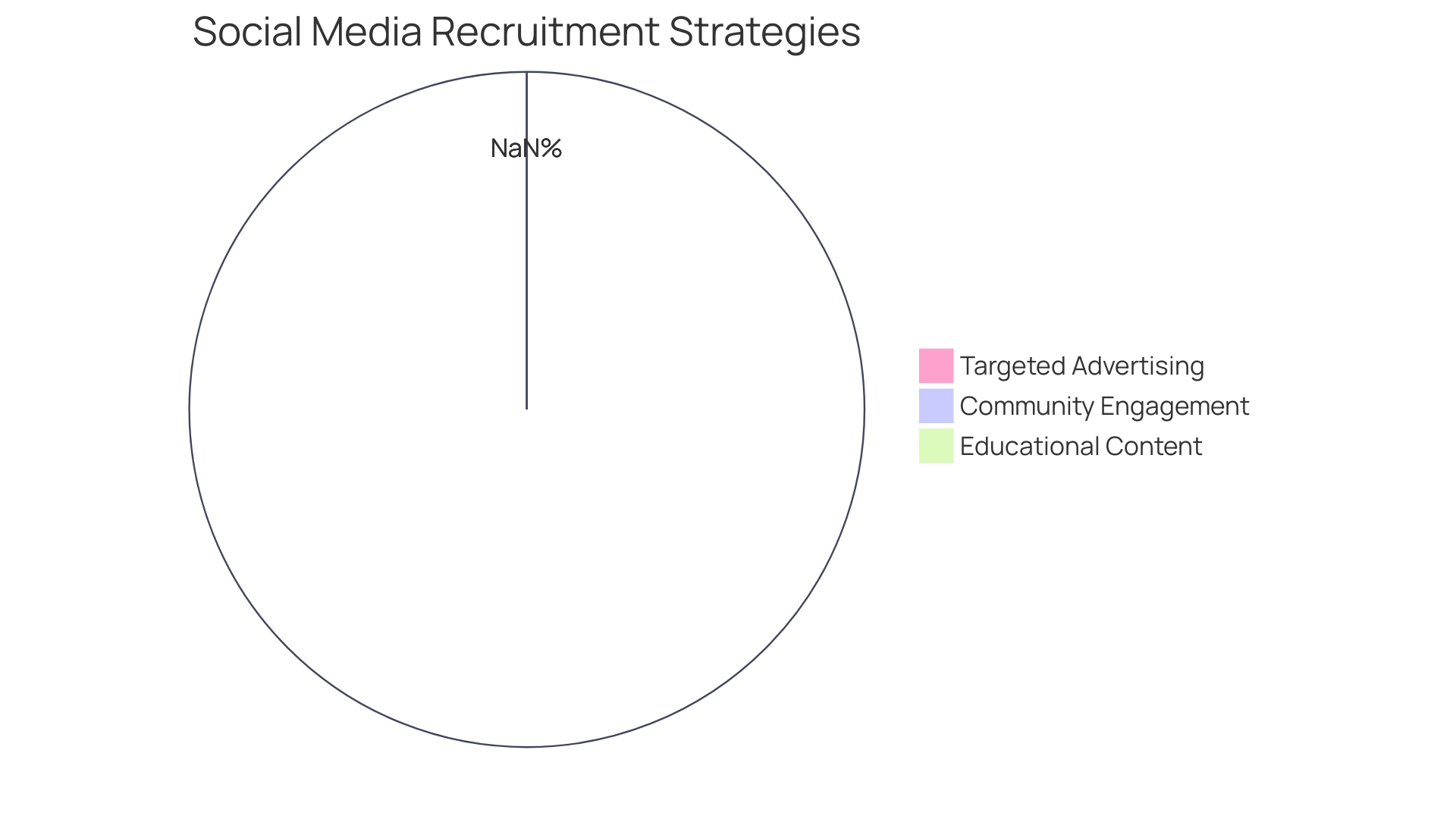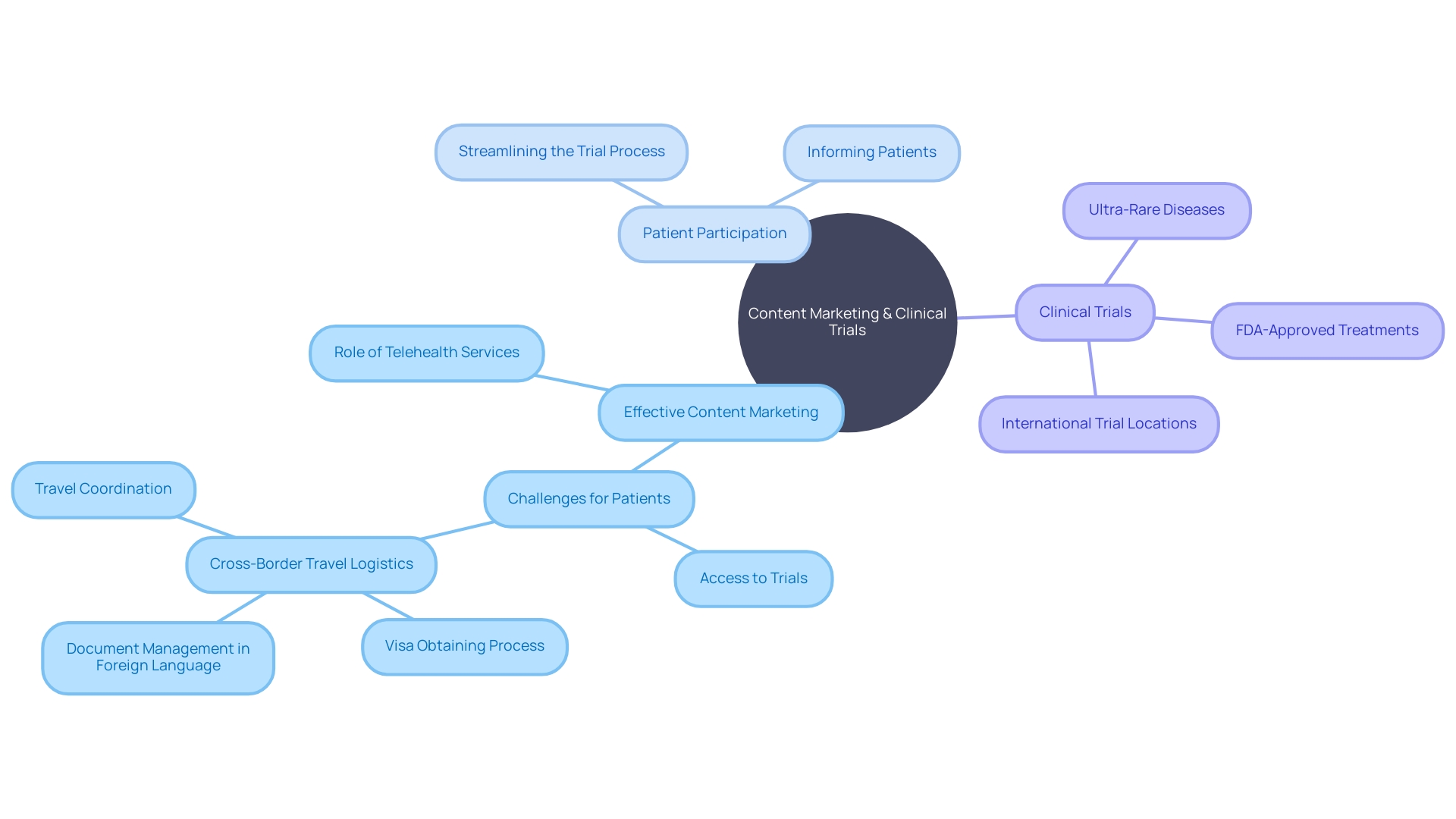Introduction
The Challenges of Clinical Trial Recruitment
Clinical trial recruitment poses significant challenges that can hinder the progress of medical research. From logistical hurdles faced by patients in accessing trials to evolving ethical considerations, there are various complexities involved. This article explores the multifaceted challenges in clinical trial recruitment and highlights the importance of patient-centricity, fair compensation, and equitable access to trials.
It also discusses the role of marketing strategies, social media, and content marketing in enhancing recruitment efforts. Furthermore, the article presents a case study that demonstrates successful clinical trial consulting and concludes with lessons learned and best practices in the field. Overall, this comprehensive examination sheds light on the intricacies of clinical trial recruitment and its impact on advancing medical research.
The Challenges of Clinical Trial Recruitment
Challenges in clinical trial recruitment are multifaceted and can significantly impede the progress of medical research. One poignant example of such a challenge is the predicament faced by a patient in rural Pennsylvania, diagnosed with an ultra-rare disease for which no FDA-approved treatment exists.
Presented with a chance to join a clinical trial in Turkey that may be lifesaving, the patient confronts daunting logistical hurdles, from securing travel visas to navigating unfamiliar languages for essential documents. Moreover, the ethical considerations surrounding participant compensation have evolved.
Stakeholders are increasingly recognizing that fair treatment includes robust reimbursement for expenses, time, and the inherent risks of trial participation, aligning with the compensation provided to those in public service roles like first responders. Furthermore, according to Daniel J Herron, Vice President of Digital Offerings at RWS, the concept of patient-centricity is paramount in clinical trials.
It entails involving patients in trial design to ensure their needs are addressed and providing information that is comprehensible, thereby emphasizing the importance of diversity, equity, and inclusion. This approach helps ensure that the varied experiences and backgrounds of individuals are represented in the trials, which is crucial for the integrity and applicability of the research. Walgreens leverages its trusted community presence to bridge care gaps and make clinical research more accessible, transforming its stores into hubs for clinical trial services, screening, and diagnostics. This initiative exemplifies a strategic move to enhance equitable access to clinical trials and underscores the necessity for such services to be embedded within communities.
Applying Marketing Principles to Clinical Trials
The application of marketing strategies in clinical trial recruitment is a transformative approach that can greatly enhance patient engagement and enrollment. By understanding the nuances between consumer and medical marketing, researchers can tailor their campaigns to address the unique challenges faced by potential participants.
For example, a patient in rural Pennsylvania with an ultra-rare disease may face daunting logistics when considering a clinical trial in another country. Addressing these concerns through patient-centric marketing, which prioritizes the patient's experience and needs, can make the difference in their decision to participate.
Daniel J Herron, a leader in digital offerings for regulated industries, emphasizes the importance of clear communication and inclusivity in trials, stating, "[Patient-centricity] means actively involving patients in the planning and design of trials, so their perspectives and needs are considered." This approach not only fosters a sense of fairness but also ensures a diverse representation in clinical research, which is vital for the efficacy and applicability of medical advancements. Furthermore, ethical considerations in compensating participants fairly for their time and contribution must be integrated into marketing strategies, recognizing that participation in clinical research is a significant public service, akin to the work of first responders. These strategic marketing efforts, guided by the expertise of clinical trial consultants, are essential for advancing medical research in a landscape where the FDA rigorously ensures the safety and effectiveness of new medical treatments.

The Role of Social Media in Enhancing Recruitment
Harnessing the power of social media has become increasingly essential for clinical trial companies seeking to connect with potential participants. The strategic use of platforms like Facebook, Twitter, and LinkedIn can significantly amplify recruitment efforts by targeting specific demographics and interests.
For instance, clinical trials testing digitally leveraged interventions have started to explore participants' self-identities, such as race, ethnicity, age, and sexual orientation, to tailor their outreach more effectively. The integration of these sociodemographic data in the recruitment process not only enhances the precision of targeted advertising but also fosters community engagement, ensuring that information about clinical trials reaches a diverse audience.
Moreover, social media serves as an educational tool, helping to inform potential participants about the specifics of a trial, including the commitment involved and any logistical considerations. A poignant example of the importance of clear communication is a rural Pennsylvania patient with an ultra-rare disease who is offered participation in a trial in Turkey. The myriad questions that arise from such an opportunity—ranging from visa procurement to navigating foreign paperwork—underscore the need for clinical trial companies to provide comprehensive, easily accessible information. By collaborating with clinical trial consultants, these companies can leverage social media effectively to address these concerns, thereby improving participant education and simplifying the decision-making process for individuals considering trial participation.

Content Marketing Strategies for Clinical Trials
Effective content marketing is pivotal in bridging the gap between clinical trials and patient participation. Crafting compelling content that addresses the real-world concerns of patients can significantly enhance engagement and awareness. For instance, consider a patient in rural Pennsylvania diagnosed with a rare disease.
Upon receiving an offer to join a clinical trial in Turkey, they face a barrage of logistical challenges, from visa procurement to navigating foreign paperwork. Addressing such scenarios with clear, supportive content can demystify the process, making clinical trials more accessible to those in need. Moreover, as telehealth services gain prominence, providing virtual healthcare solutions becomes crucial.
Telehealth's rise, accelerated by the pandemic's social distancing requirements, underscores the importance of adaptable healthcare marketing strategies. Content that resonates with the evolving needs of healthcare facilities and patients can leverage the shift towards remote patient monitoring and teleconsultations. Ken Getz, an authority on clinical trial design, emphasizes the industry's shift towards operational efficiency alongside scientific excellence.
He notes, "There's been growing recognition in the importance of balancing great science with great execution." This insight reflects the necessity for clinical trial companies to develop content that not only informs but also streamlines the patient's journey through the trial process. As the healthcare landscape evolves, so too must the content that supports it, ensuring that it aligns with the nuanced needs of patients and healthcare providers alike.

Case Study: Successful Clinical Trial Consulting
Clinical trial companies are pivotal in navigating the complexities of patient recruitment and trial logistics, especially for those with rare diseases seeking treatment options abroad. A compelling illustration of this is the case of a patient from rural Pennsylvania with an ultra-rare disease. Facing no approved treatments within the United States, the patient was presented with the chance to join a clinical trial in Turkey.
The prospect was fraught with challenges, such as obtaining necessary visas, handling paperwork in an unfamiliar language, and organizing international travel. Tackling these hurdles, a clinical trial consulting firm stepped in to provide end-to-end solutions, ensuring the patient's seamless participation in the trial. Their approach underscored the importance of comprehensive support services, which included assistance with travel arrangements, document translations, and navigating regulatory requirements.
This not only facilitated the patient's access to potentially life-saving therapy but also set a benchmark for patient-centric strategies in global clinical trials. As exemplified by CMIC Group, Japan's first and largest Contract Research Organization, the industry continues to evolve, offering a spectrum of services that span the entire pharmaceutical value chain. This case study serves as a testament to the critical role of clinical trial companies in bridging the gap between patients and advanced medical interventions, regardless of geographic barriers.
Lessons Learned and Best Practices
Clinical trial consulting encapsulates a myriad of best practices honed through rigorous experiences and case studies. One salient lesson from the field is the critical importance of effective communication with research teams.
Tailoring terminology and tools to the audience's knowledge level, as highlighted by an insightful quote, ensures that complex scientific concepts are conveyed with clarity. Building strong relationships with participants is equally vital, often involving the navigation of logistical challenges such as cross-border travel for patients with rare diseases, a scenario that underscores the need for empathetic and supportive consulting.
Staying abreast of regulatory requirements is non-negotiable in the dynamic landscape of clinical trials. A recent JAMA paper points out the inefficiencies arising from the siloed operations of clinical trialists and clinicians, advocating for better integration of clinical trials with clinical practice.
Moreover, with over 40,000 registered clinical trials annually, it is imperative for consultants to guide their research with precision and relevance to bridge the gap between controlled trial conditions and real-world clinical applications. The clinical investigator training course serves as an exemplar of comprehensive education for stakeholders, including healthcare professionals and researchers. It emphasizes the importance of addressing specific populations and safety concerns in drug development, imparting a practical understanding that is crucial for the advancement of medical products. In conclusion, these insights and best practices are instrumental for researchers and clinical trial consultants aiming for success in their future endeavors, ensuring that the intricate process of clinical trials leads to safe, effective, and patient-centered outcomes.
Conclusion
Clinical trial recruitment poses significant challenges that can hinder medical research progress. This article has explored the complexities involved, emphasizing the importance of patient-centricity, fair compensation, and equitable access to trials. Marketing strategies, social media, and content marketing enhance patient engagement.
Tailoring campaigns and providing clear communication are key factors for success. Social media amplifies recruitment efforts by targeting specific demographics. Integrating sociodemographic data improves precision in advertising and fosters community engagement.
Effective content marketing bridges the gap between trials and patient participation. Crafting compelling content makes trials more accessible, especially with the rise of telehealth services. Clinical trial consulting plays a critical role in navigating complexities.
Comprehensive support services ensure seamless participation for patients seeking treatment options abroad. In conclusion, effective communication, strong relationships, regulatory compliance, and comprehensive education are instrumental for success in clinical trial research. These insights contribute to safe, effective, and patient-centered outcomes.
Join bioaccess™ to overcome these challenges and advance medical research today!




